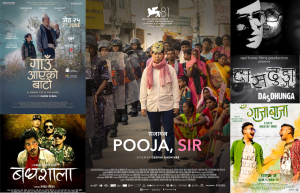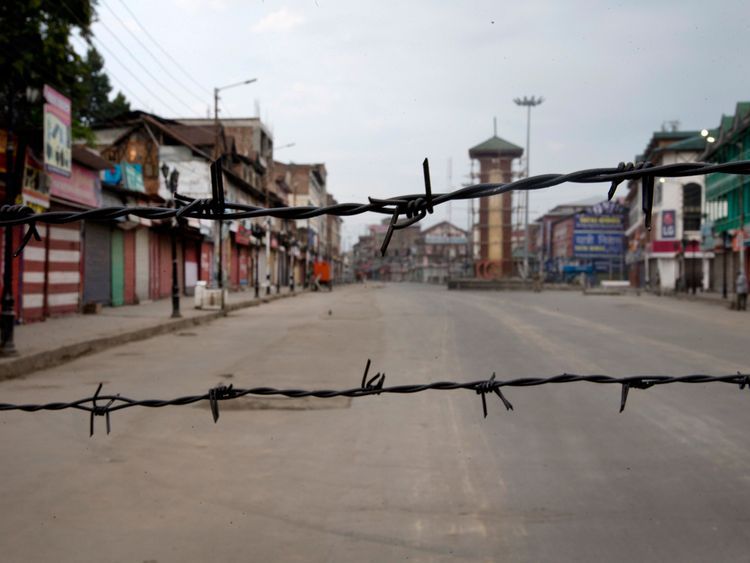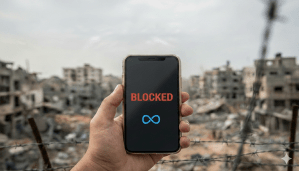


I don’t want to count the days of the siege of Kashmir anymore. Sixty-seven. I don’t want, but I have to. We must not stop counting, because if we stop we run the risk to forget. And forget we must not.
It has been since the 5th of August that Kashmir is cut off from the rest of the world: the right of association suspended; communications blocked (no internet or mobile connections); schools closed; shops shut; curfew enforced. The unilateral revision by the Indian government of an article of the Constitution that granted Kashmir a partial autonomy and an exceptional status was preceded by a fully-fledged military occupation (the ratio between military personnel and civilians is higher than that in Iraq or Afghanistan at the peak of the American invasion) and a pre-emptive collective punishment to avoid any form of protest.
And after that, it was almost complete blackout for weeks. There was no news except for the sporadic ones that would filter through the occasional traveller who would manage to sneak out a USB key with photos, testimonies and evidence of the abuses that the Indian government would keep denying. Now that landlines are partly functioning the full scale of the horror is slowly emerging.
What does this mean?
It means, for example, that weddings are suspended because of the curfew and the suspension of the right to public gatherings. It means that you can’t call home to check on your loved ones or simply wish goodnight to your mum, boyfriend, sister. It means limited food because there is hardly any way to do the groceries. It means that hospitals can’t stock up medicines, that there is no insulin or lifesaving medications. And this is if one is lucky enough to get to the hospital in the first place and not die on the street for a snake bite or an infection because, checkpoint after checkpoint, the Army either delays the journey or prevents altogether to travel on. It means that relatives may die, and the news reaches those who leave outside the Valley much later if at all. It means that if you go out to buy milk you may not go back home because you may be beaten up, arrested, disappeared. It means torture. It means physical, moral and sexual violence against those who dare to protest – or against those who happen to be young men sleeping in their own beds at the time of an arbitrary nightly round-up. It means that more than 150 adolescent boys – including two 9-year-old children – were pre-emptively arrested for being potentially dangerous; two of those died by “suicide” after days in detention and with torture marks on their bodies. It means that the Army is not allowing to issue death certificated to prevent the possibility to count unnatural deaths.
What does this all mean?
I don’t really know; I struggle to fully comprehend the depth of such brutality.
What I know, however, is that – as history teaches us even though we forget – fascism is blind. So much violence, fury and repression are never going to work: they may have seemingly “positive” immediate results, but in the long run this is a strategy that does not succeed. The strategy of horror of the Indian government is certainly generating concern, anxiety, fear, depression, but it is mostly blowing on the fire of an unspeakable rage. In Kashmir now, there’s nothing left to lose and so people hold on with tooth and nail to the desire of freedom and the will of self-determination that have been nurturing seventy years of struggles.
Brutality never wins. The cost is very high, but this fascist oppression is waging a war that is lost from the start – or this is, at least, what we want to hope.
It is 67 days of siege. And counting. And we need to continue counting.
Related Posts
It is 67 days of siege. And counting. And we need to continue counting


I don’t want to count the days of the siege of Kashmir anymore. Sixty-seven. I don’t want, but I have to. We must not stop counting, because if we stop we run the risk to forget. And forget we must not.
It has been since the 5th of August that Kashmir is cut off from the rest of the world: the right of association suspended; communications blocked (no internet or mobile connections); schools closed; shops shut; curfew enforced. The unilateral revision by the Indian government of an article of the Constitution that granted Kashmir a partial autonomy and an exceptional status was preceded by a fully-fledged military occupation (the ratio between military personnel and civilians is higher than that in Iraq or Afghanistan at the peak of the American invasion) and a pre-emptive collective punishment to avoid any form of protest.
And after that, it was almost complete blackout for weeks. There was no news except for the sporadic ones that would filter through the occasional traveller who would manage to sneak out a USB key with photos, testimonies and evidence of the abuses that the Indian government would keep denying. Now that landlines are partly functioning the full scale of the horror is slowly emerging.
What does this mean?
It means, for example, that weddings are suspended because of the curfew and the suspension of the right to public gatherings. It means that you can’t call home to check on your loved ones or simply wish goodnight to your mum, boyfriend, sister. It means limited food because there is hardly any way to do the groceries. It means that hospitals can’t stock up medicines, that there is no insulin or lifesaving medications. And this is if one is lucky enough to get to the hospital in the first place and not die on the street for a snake bite or an infection because, checkpoint after checkpoint, the Army either delays the journey or prevents altogether to travel on. It means that relatives may die, and the news reaches those who leave outside the Valley much later if at all. It means that if you go out to buy milk you may not go back home because you may be beaten up, arrested, disappeared. It means torture. It means physical, moral and sexual violence against those who dare to protest – or against those who happen to be young men sleeping in their own beds at the time of an arbitrary nightly round-up. It means that more than 150 adolescent boys – including two 9-year-old children – were pre-emptively arrested for being potentially dangerous; two of those died by “suicide” after days in detention and with torture marks on their bodies. It means that the Army is not allowing to issue death certificated to prevent the possibility to count unnatural deaths.
What does this all mean?
I don’t really know; I struggle to fully comprehend the depth of such brutality.
What I know, however, is that – as history teaches us even though we forget – fascism is blind. So much violence, fury and repression are never going to work: they may have seemingly “positive” immediate results, but in the long run this is a strategy that does not succeed. The strategy of horror of the Indian government is certainly generating concern, anxiety, fear, depression, but it is mostly blowing on the fire of an unspeakable rage. In Kashmir now, there’s nothing left to lose and so people hold on with tooth and nail to the desire of freedom and the will of self-determination that have been nurturing seventy years of struggles.
Brutality never wins. The cost is very high, but this fascist oppression is waging a war that is lost from the start – or this is, at least, what we want to hope.
It is 67 days of siege. And counting. And we need to continue counting.
SUPPORT US
We like bringing the stories that don’t get told to you. For that, we need your support. However small, we would appreciate it.








